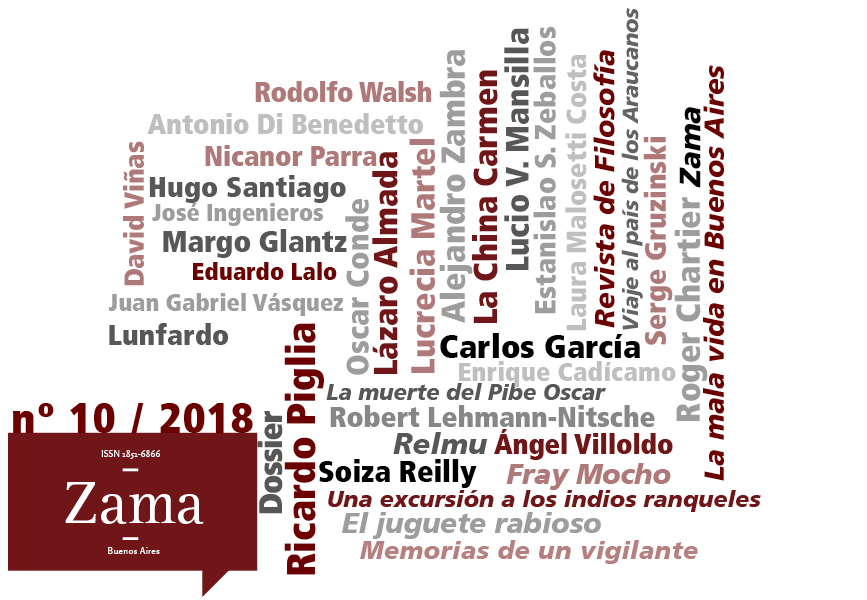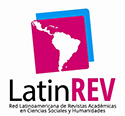Power of the utopian novel, from Piglia to Walsh
Keywords:
displacement, fiction/reality, writer's reading, riskiness
Abstract
Amphibian between criticism and fiction, Ricardo Piglia’s wide range of reading operations can be biased around his appreciation of Rodolfo Walsh’s project. As his novelistic, essay, editorial and teaching work shows especially in the 1990s and 2000s (but also in the early 70), Piglia’s intervention is decisive in order to make visible the current dangerousness of Walsh’s writing, and at the same time that hermeneutic evaluation has repercussions on his singular production of hypotheses about Hispanic American literature in between-centuries. The article explores the extent to which the reading/writing mutual relations operate on the dichotomy between literature and society; this distribution was made problematic in the Argentine culture by the years of Piglia’s formation (1957-1967 according to the first volume of Los diarios de Emilio Renzi) and has been reformulated at the turn of the century with displacements that, from Piglia to Walsh, trigger the projection of a novel with offensive power against the cultural consensus of late capitalism.Downloads
Download data is not yet available.
How to Cite
Luppi, J. P. (1). Power of the utopian novel, from Piglia to Walsh. Zama, 10(10), 87-97. https://doi.org/10.34096/zama.a10.n10.5395
Issue
Section
I. Piglia / Renzi: el último lector












